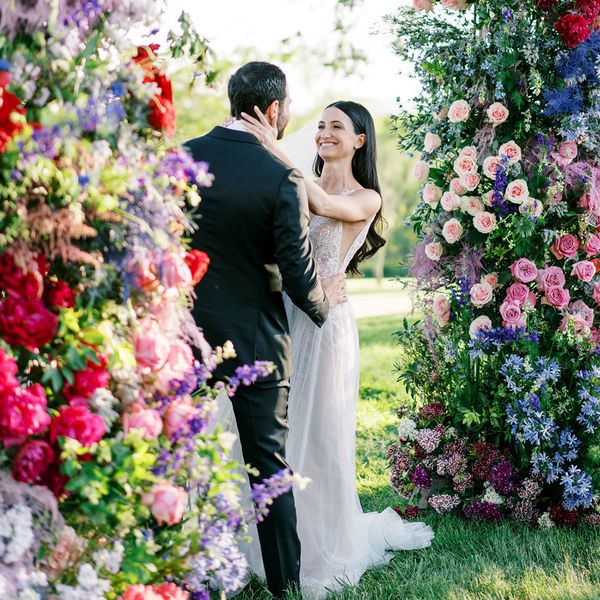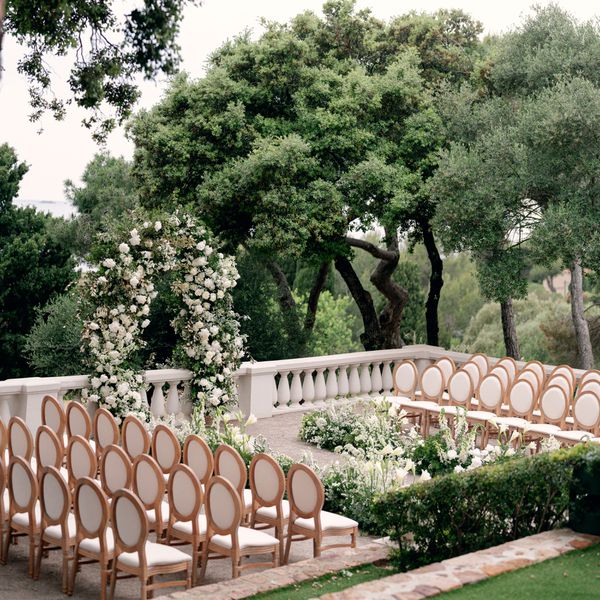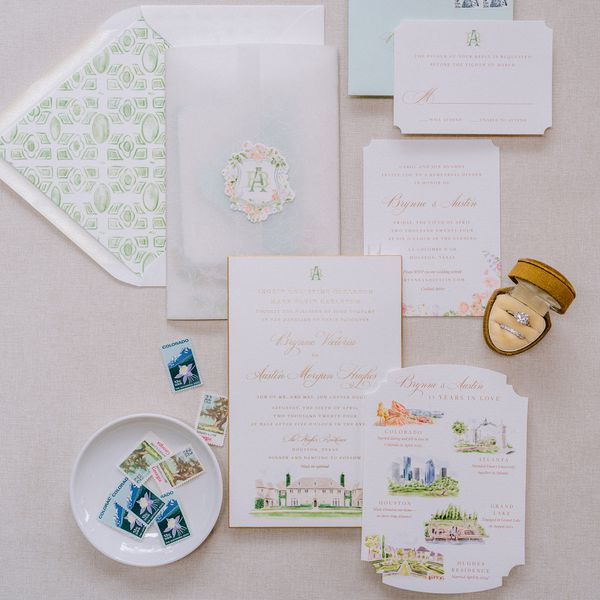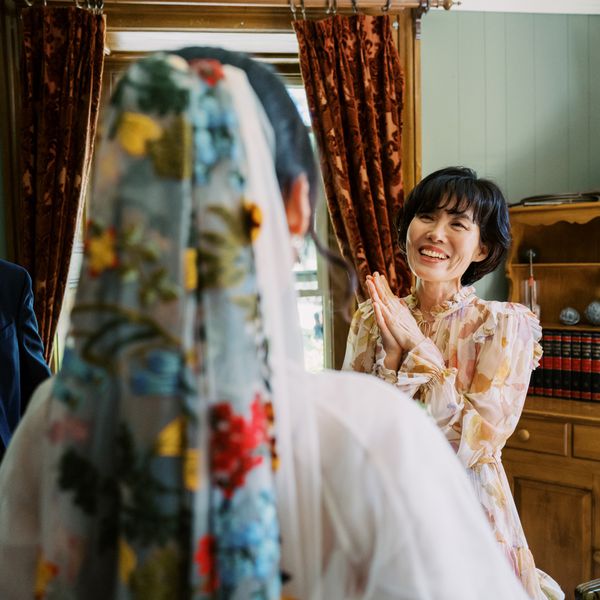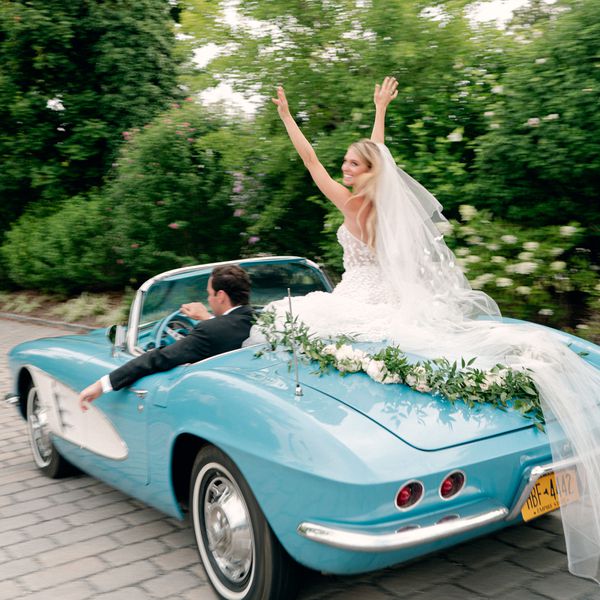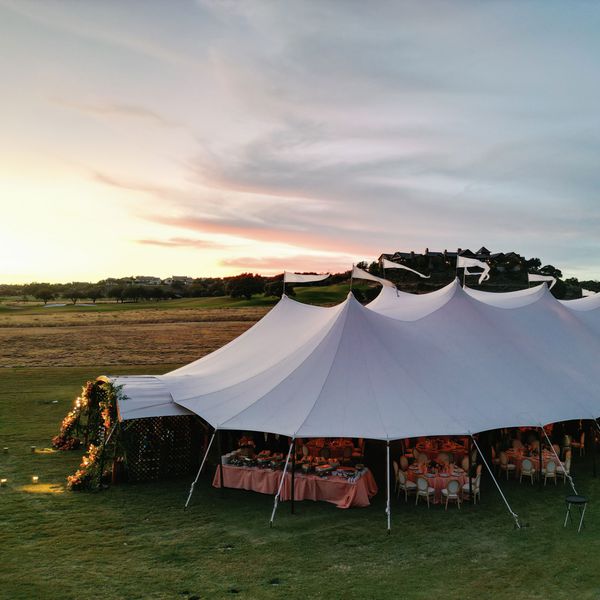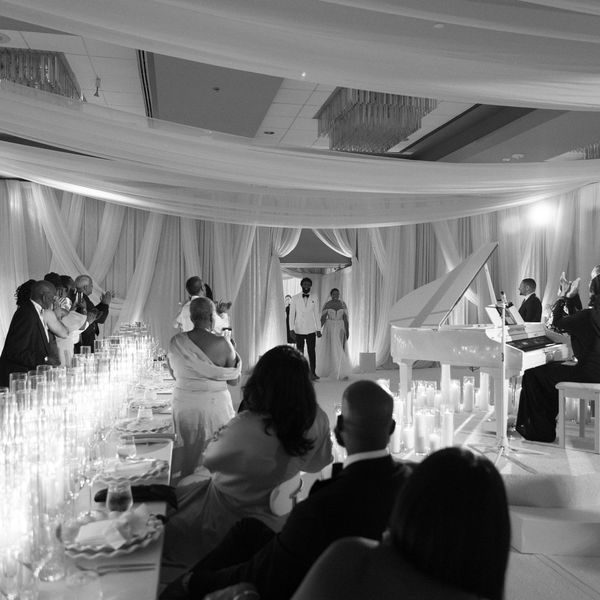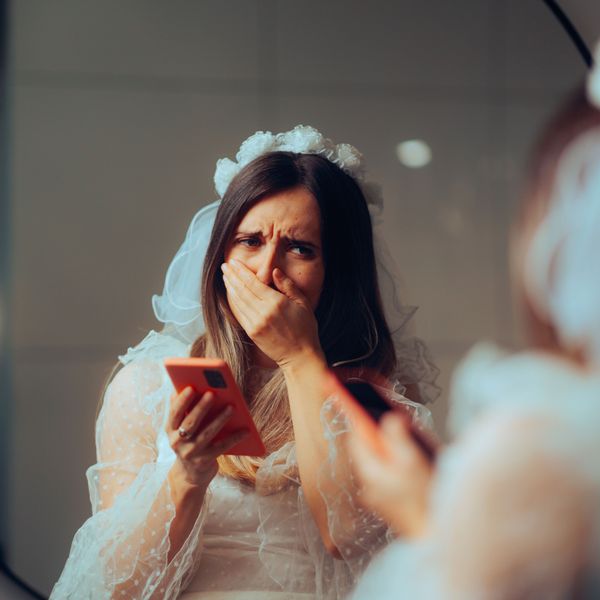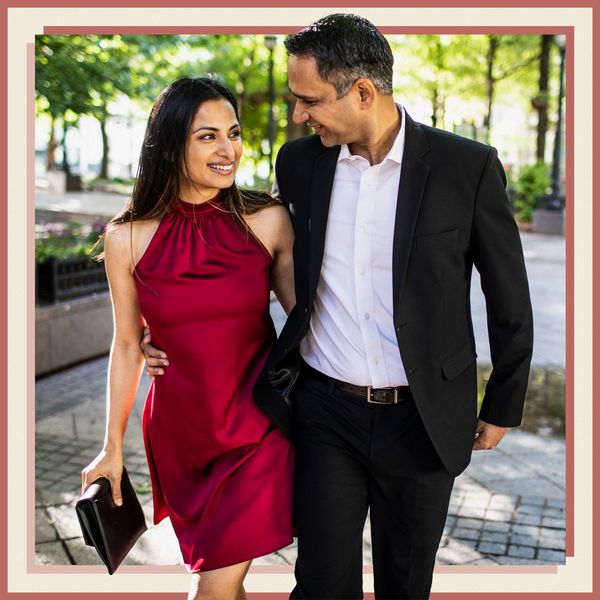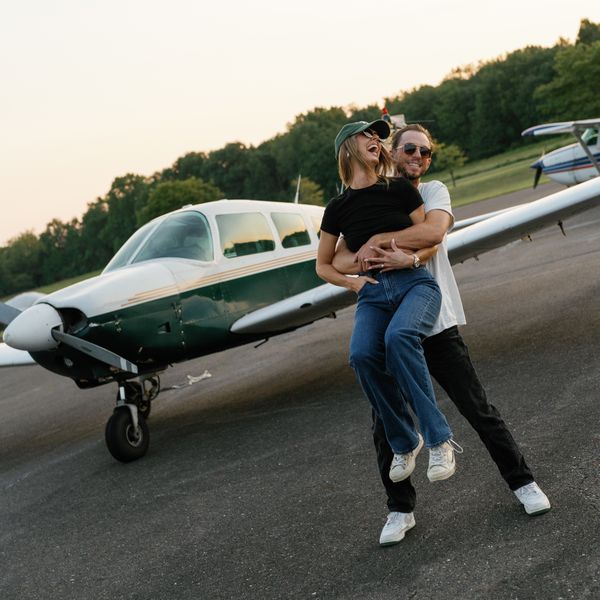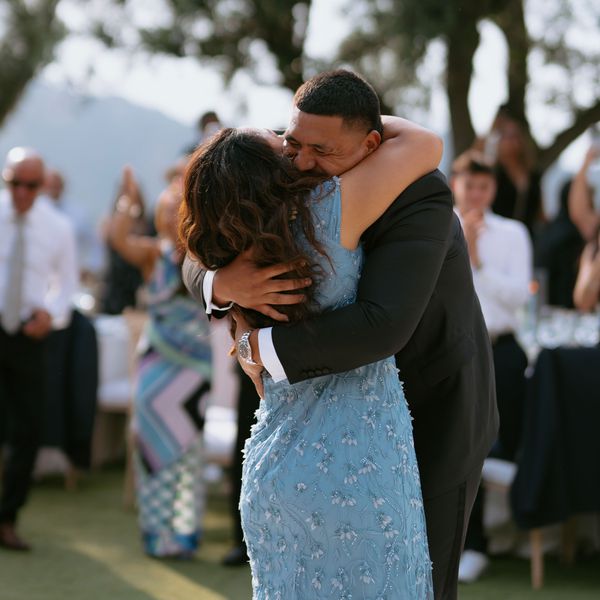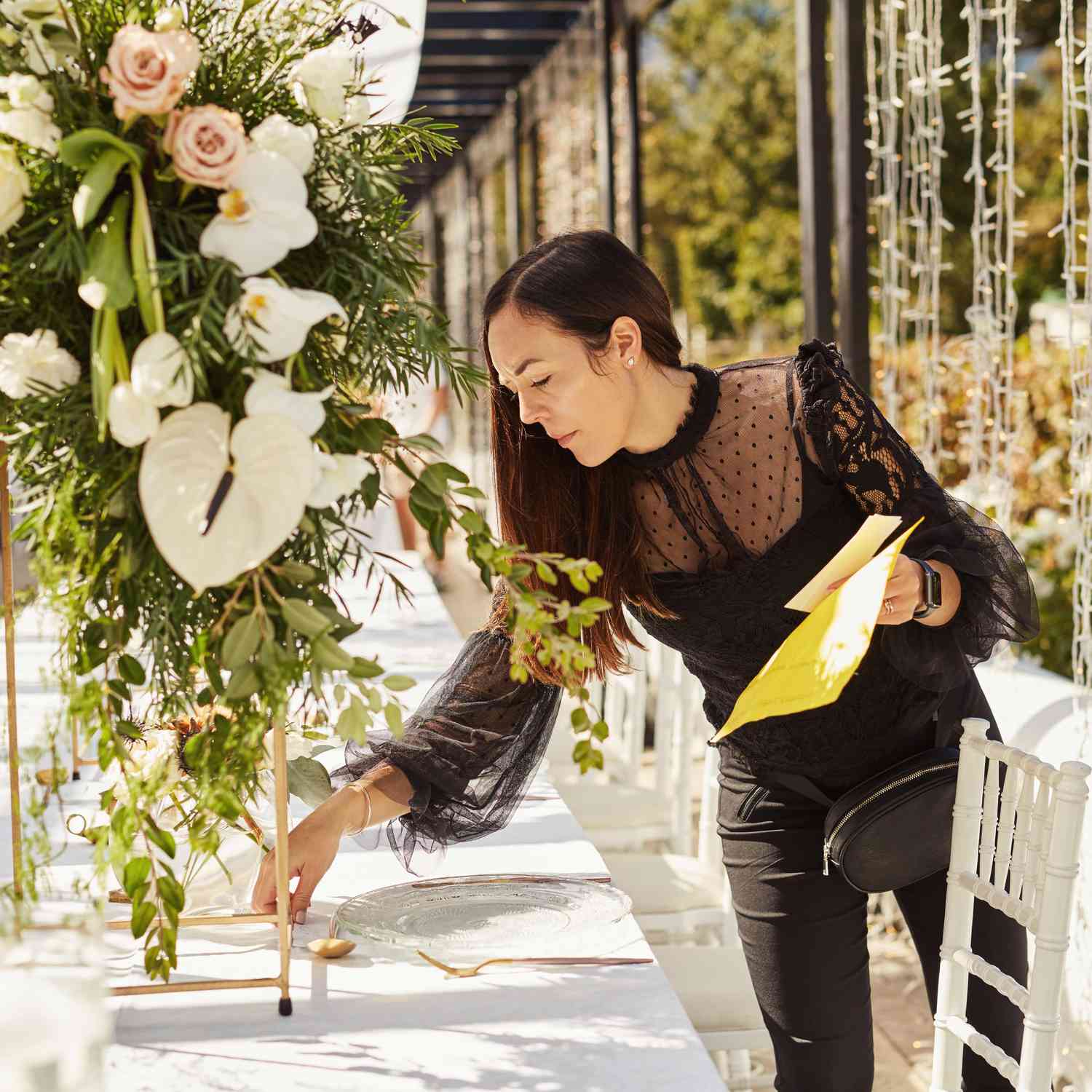
We spend a majority of our week attending to the roles and responsibilities that our jobs expect of us, so choosing a profession that brings you joy and employs your inherent talent and skill set is the goal for many. One occupation that many consider to be a dream job is a wedding planner, which entails planning and designing a couple's wedding festivities.
If you get a thrill every time you see a bride in her wedding dress for the first time, experience butterflies after hearing "I do," and have a knack for organization and visual design, then becoming a wedding planner might be the perfect career path for you. There's nothing more rewarding than turning an abstract vision into a concrete reality on the most special day in a person's life and building long-lasting relationships (and getting paid to do so!). For those interested in orchestrating destination weddings, another perk is traveling to beautiful places around the world.
Meet the Expert
- Nicole-Natassha Goulding is the creative director and founder of full-service wedding planning company Chic by Nicole.
- Heather Hoesch and Lindsay Ferguson are the co-owners of LVL Weddings & Events, known for producing one-of-a-kind nuptials in California, Hawaii, and Colorado, and Planner Life Academy, which offers workshops and virtual training programs to prepare leaders to open their own wedding planning businesses.
- Michelle Rago is the owner of Michelle Rago Destinations, a wedding and event planning company based in New York City, but she also organizes elaborate destination weddings in far-flung locations.
- Francie Dorman is the owner of 42 North, a full-service wedding and event planning firm. She is based in Ipswich, Massachusetts, and specializes in high-luxury celebrations across New England. She also mentors young wedding planners through a sister company, Mavinhouse Events.
While having an eye for creativity and an interest in weddings are definitely essential prerequisites, planning nuptials also requires a handful of additional skills, such as excellent communication, impeccable attention to detail, and strong organization. In order to pull off a grand, complex affair like a wedding, a planner must do meticulous research, arrange even the most minute details, coordinate with multiple parties, and keep everything on schedule, while juggling countless other tasks. Helping a couple plan their special day from start to finish is hard work, but it's extremely fulfilling for many.
If you're thinking about becoming a wedding planner but you have no idea where to start, we tapped a handful of successful industry insiders to share their tips and tricks for landing this job and excelling in the industry. Read on to start the process.
:max_bytes(150000):strip_icc()/how-to-become-wedding-planner-getty-images-97c21081725c48659be100fecbed88f2.jpg)
EMS Forster Production / Getty Images
The Skills Needed to Become a Wedding Planner
Like most careers, wedding planners need certain skills, personality traits, and qualifications for the job. Ahead, the pros share some of the most important ones.
Leadership
Wedding planners wear multiple hats. Within this role, they have to deal with many people (couples and their families and the entire vendor team) and attend to a long list of responsibilities (reviewing contracts, managing the budget, attending meetings, answering emails, and designing the day, according to wedding planner Nicole-Natassha Goulding). And many days, all of this happens at once. For that reason, being able to make decisions and guide the couple in a high-pressure atmosphere is key. “Being a good leader and being able to stay calm, delegate, listen, and lead in a time of stress is your most important skill,” wedding planner Lindsay Ferguson says.
Attention to Detail
Since wedding planners navigate many moving parts at once and operate on a schedule, in this position, you have to be highly organized and extremely detail-oriented. "Our daily tasks are rooted in making sure that all of the details are being executed with precision," wedding planner Michelle Rago shares.
If these characteristics aren't innate, luckily, wedding planner Francie Dorman says you can develop them over time. “These skills or traits can be built on as you grow into your role,” Dorman explains. “They are muscles that can get stronger as they are flexed.” Hands-on experience and continual learning will help you refine your organizational skills.
Problem Solving
At any given point during the wedding-planning process and on the couple's big day, something can go awry. Perhaps a vendor cancels at the last-minute, or maybe it starts to rain right before the celebration. These unexpected situations require planners to quickly problem solve without letting the stress of the unknown and the time crunch weigh them down.
Empathy
While anyone can learn the systems and procedures and acquire the skills needed to plan weddings, Dorman believes that what sets a good planner apart from an excellent one is empathy. “Someone who likes to feel purposeful and strives to make others feel important and cared for are two factors for success in this unique industry," she notes. If the couple is dealing with a difficult family member or they're having a tough time making a decision, planners function as a quasi-therapist, listening to and validating their clients before helping them move forward.
A Willingness to Learn
Even wedding planners with decades of experience under their belt are still constantly learning new tricks and trends regarding their job. Having a willingness to learn and an excitement about absorbing new information will help you kick off your career and continue advancing it. "The best wedding planners have a ‘never stop learning’ mindset,” wedding planner Heather Hoesch admits. “They read, they watch webinars and social media lives, and they collaborate and listen to wedding podcasts. They take courses and attend workshops and conferences.”
:max_bytes(150000):strip_icc()/becoming-wedding-planner-getty-images-30d43bdabb5b4cf7b3d56b4a7853dc93.jpg)
Jetta Productions Inc / Getty Images
How to Become a Wedding Planner
Possessing these traits and skills is only half the battle. Below, we've pieced together a step-by-step guide to actually becoming a wedding planner.
Do Your Research
Since you’re likely entering a new field, the first step involves doing some research to understand what type of wedding planning jobs are out there. While some specialize in orchestrating elopements, others execute destination affairs. And some handle every type of event. To start the learning process, familiarize yourself with the job requirements and explore wedding planners’ websites and social media platforms to get a feel for what they do.
Seek Out Learning Opportunities
In order to become a wedding planner, you must learn about the industry. Seek out opportunities to advance your knowledge about this field, whether it's following wedding planners on social media, listening to wedding podcasts, or attending seminars. While learning is crucial at the beginning of your career, continuing that education over the years will keep you at the top of your game.
Aquire Hands-On Experience
Getting first-hand experience from a veteran is the only way to learn the ins and outs of the industry and improve your skills. "I always suggest to those who are interested in planning to intern, volunteer, or work with a planner who produces the types of events that interest you," Goulding says. "Hands-on experience in this field is priceless, and being involved in the process will provide you with a great foundation to start your own business." Rago recommends working with as many professional wedding planners as possible.
Network With Professionals
Like many other careers, networking is an excellent tool to get your foot in the door. Talking to other people in the industry will help you learn about the job, build connections for the future, and inspire you to work toward your goals. Plus, because wedding planning requires working with many personalities, networking provides an opportunity to practice your communication and people skills.
Join Organizations
Joining an organization like a professional association for wedding planners will help you meet like-minded individuals and move forward in your career. Within these groups, you'll exchange resources and possibly learn about job opportunities.
Consider Getting a Certification
Getting a certification isn't an essential qualification, but it will give you authority in the wedding space. With a certification, you'll market yourself as a trusted, knowledgable source, setting you apart from other planners and making you an enticing potential vendor available for hire. Certain trade groups and associations like American Association of Certified Wedding Planners and Longevity's Wedding Planning Institute offer these types of opportunities.
:max_bytes(150000):strip_icc()/wedding-planner-getty-images-50c8228045894243aed802836cb83775.jpg)
Getty Images
How Real Wedding Planners Got Their Start
Wondering how this process translates to real life? Below, the professionals share how they got started in the wedding industry.
Received Encouragement from Loved Ones
Ferguson's journey of becoming a wedding planner began at home. “I grew up with an entrepreneurial mom who really encouraged me to find something that I loved and was passionate about," she recounts. Since Ferguson always enjoyed hospitality and customer service, she decided to pursue wedding planning. As a young professional, she landed her first gig as a part-time wedding planner in Chicago.
Accumulated Relevant Experience
In college, Hoesch worked for a catering company that primarily served weddings. “I learned a ton about food, service, timelines, flow, logistics, guest experience, and catering to couples' needs for their special day,” Hoesch expresses. That experience allowed her to launch her own company five years later.
Rago also began her career in wedding-related fields like hotel sales and floral design. Those experiences gave her a “more holistic approach of producing with an emphasis on design, food and beverage, and service,” she says.
Took on Leadership Roles in Other Fields
Dorman honed her skills as a wedding planner while working as an event hostess, executive assistant, and general manager at a restaurant. "These experiences helped me build fortitude and a deep understanding of what happens in the ‘back of the house,'" she reveals. Her resumé helped her secure a job at a small, local wedding planning company before starting her own.

